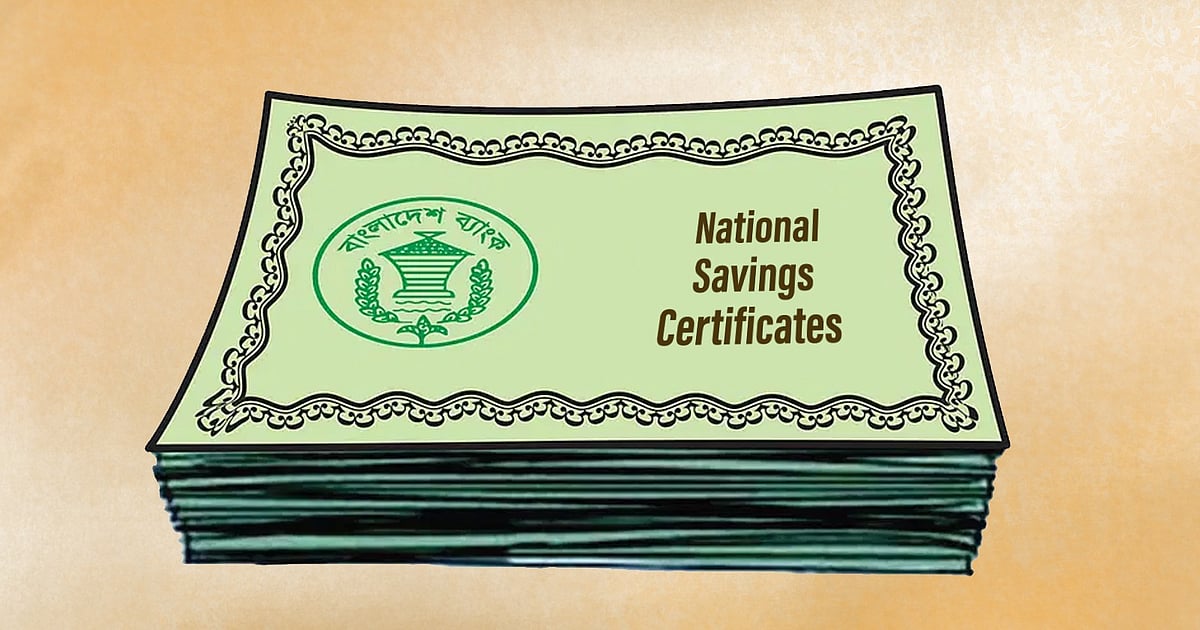Staff Correspondent
Published:2025-11-05 12:49:02 BdST
Savings certificate investment slumps as bank deposits rise
Investment in national savings certificates (NSCs) has dropped sharply even as deposits in the banking sector continue to grow, signaling a shift in public preference toward higher-yielding financial instruments.
According to the latest Bangladesh Bank data, net investment in savings certificates fell to only Tk337 crore in September 2025, down 96% from Tk8,332 crore in the same month last year.
During the first quarter of the current fiscal year (July-September FY26), total net investment stood at Tk1,945 crore, a 52.7% decline from Tk4,109 crore during the corresponding period of the previous fiscal year.
Analysts say the decline reflects the impact of rising interest rates on bank deposits and government securities. As lending rates climb, commercial banks have raised deposit rates, encouraging savers to move funds from savings certificates into bank accounts.
At the same time, higher yields on treasury bills and bonds have drawn both institutional and individual investors.
“The government has imposed limits on family-level investments, while bank deposit rates have risen. These two factors together have discouraged savings certificate purchases,” Dr Mustafa K Mujeri, executive director of the Institute for Inclusive Finance and Development (InM), said this while briefing reporters.
In January, the government increased interest rates on all types of savings certificates up to a certain threshold. Still, the measures have yet to produce visible results.
Data from the National Savings Directorate (NSD) show that in July, the first month of FY26, net investment stood at Tk1,293 crore, nearly 69% lower than a year earlier.
In August 2024, customers invested Tk2,036 crore in savings certificates. But in August 2025, sales plunged to just Tk289 crore, a drop of Tk1,785 crore or 87.7%.
Savings certificates remain a vital source of government borrowing to finance the budget deficit. For the current fiscal year, the government has set a net borrowing target of Tk12,500 crore through NSC sales.
As of September 2025, total outstanding investment in savings certificates stood at Tk3.40 lakh crore.
Despite several policy relaxations and incentives introduced to boost sales, the response has been muted.
The government recently raised the purchase limit exempt from mandatory income tax return submission to Tk10 lakh, up from Tk5 lakh.
It also reinstated the reinvestment facility upon maturity for individual investors, reintroduced reinvestment in Post Office fixed-term accounts, lifted the investment ceiling on Wage Earner Development Bonds, and started offering monthly profits instead of quarterly on Pensioner Savings Certificates.
Meanwhile, Bangladesh Bank data indicate a broader shift in government borrowing strategy.
During the first two months of FY26, the government repaid more than it borrowed from the banking system, resulting in a net reduction of Tk2,517 crore in total bank debt.
At the end of August 2025, the government’s outstanding debt to the banking system stood at Tk5.44 lakh crore, down from Tk5.47 lakh crore in June.
During this period, borrowing from commercial banks rose slightly by Tk589 crore, while borrowing from the central bank declined by Tk3,105 crore as repayments outpaced new loans.
Unauthorized use or reproduction of The Finance Today content for commercial purposes is strictly prohibited.


